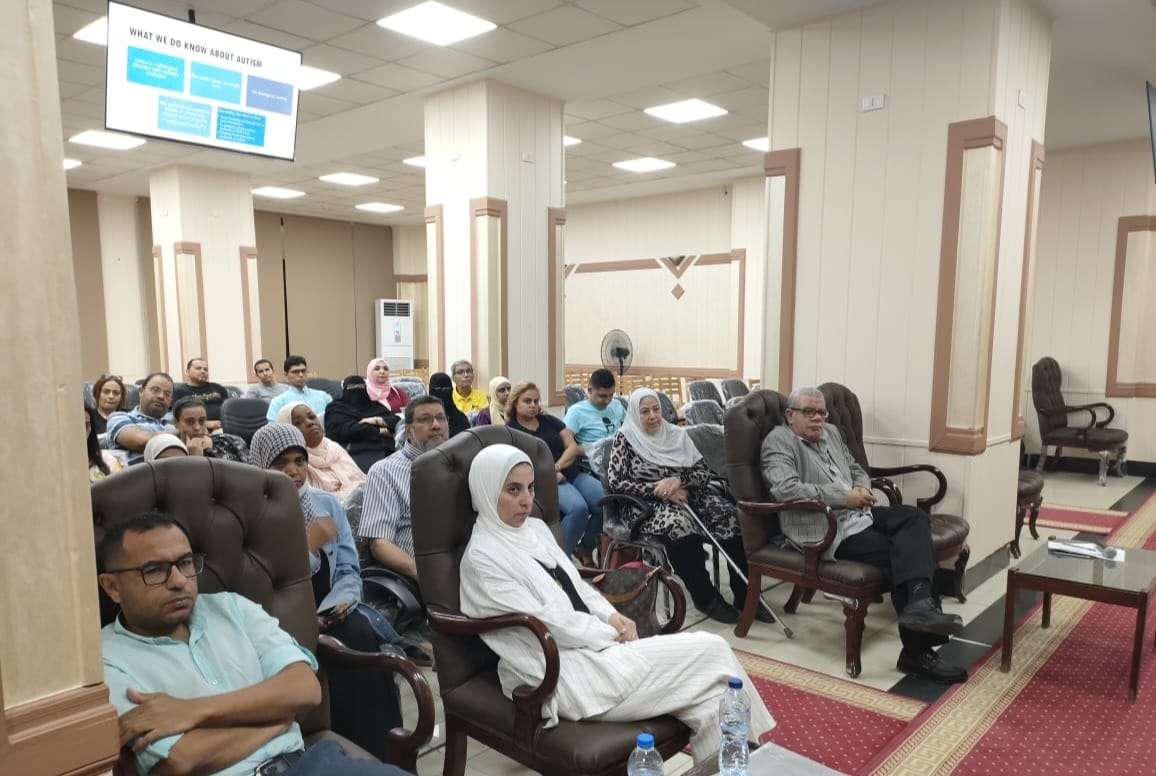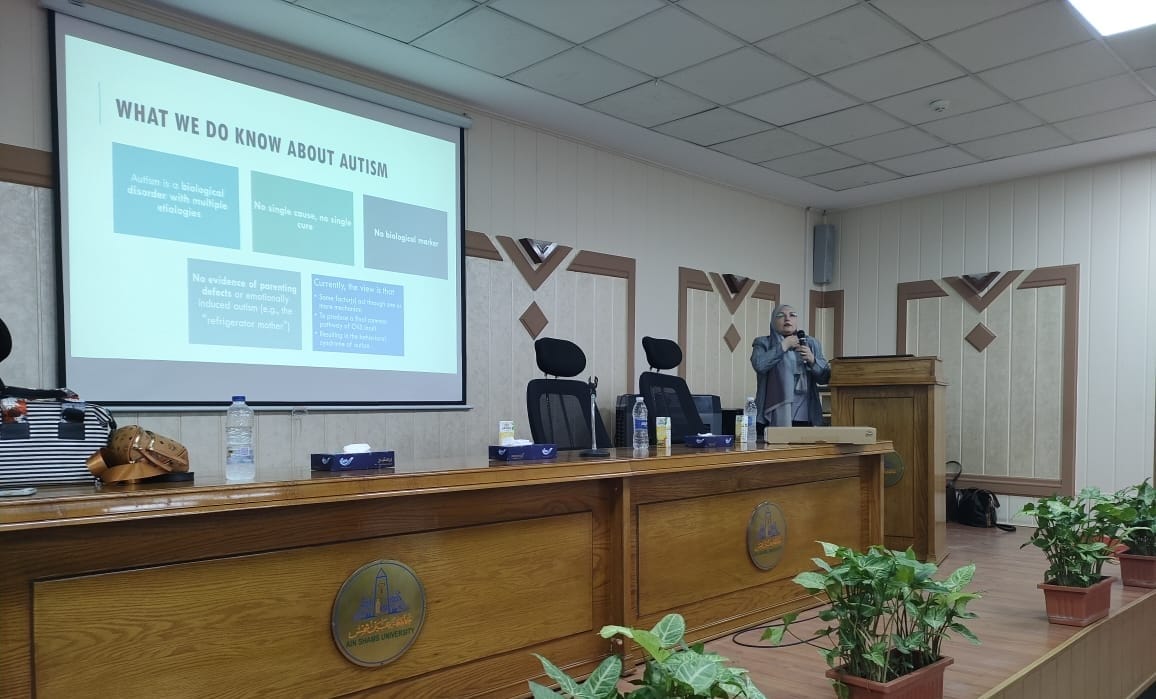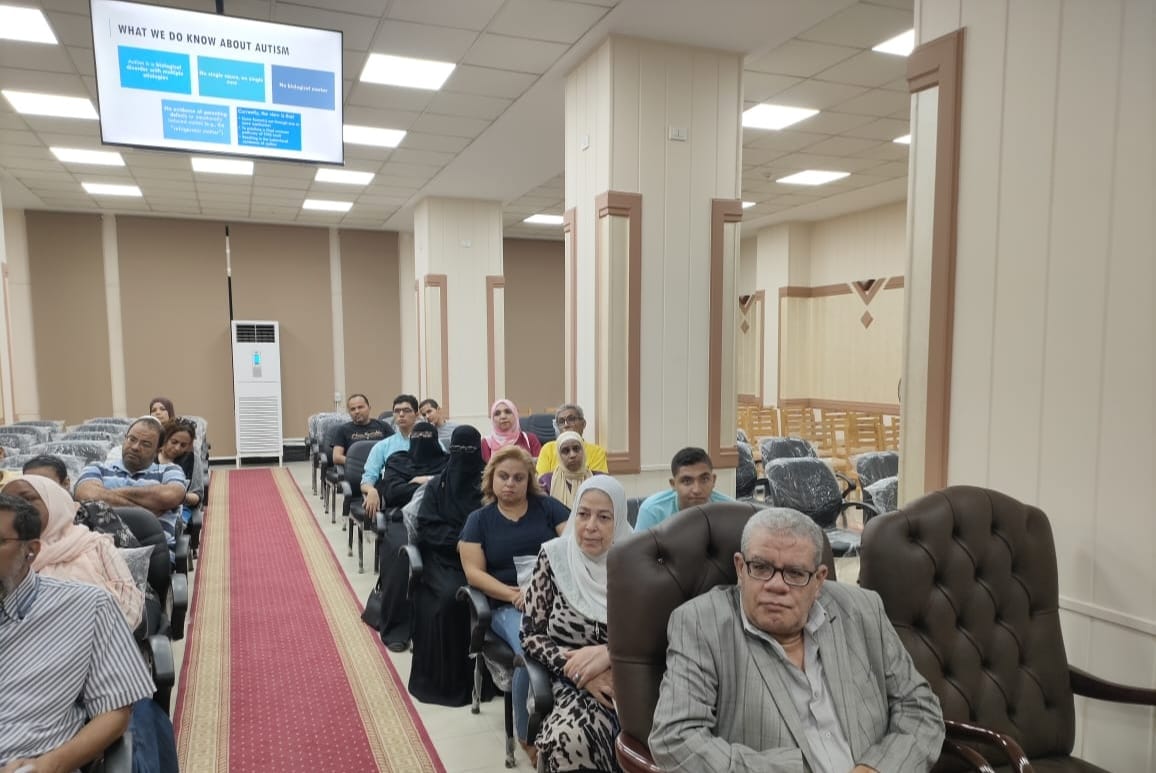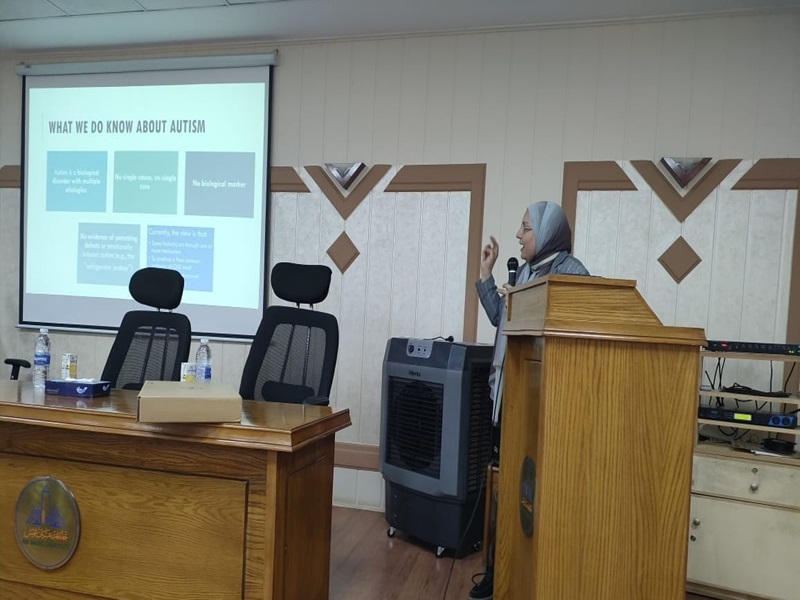The Education and Students Affairs Sector completes Its Awareness Initiative for Parents of People with special needs with a symposium on Autism Spectrum Disorder
Within the framework of the university's new vision that aims to support the Knights of Will and enhance interest in students with special needs and healthy people alike, and in conjunction with the reception of the academic year 2024/2025 and under the auspices of Prof. Mohamed Diaa Zain El-Abedeen, President of Ain Shams University.
The Education and Student Affairs Sector has completed its initiative through which it organizes a series of awareness campaigns directed at parents of students with disabilities on how to deal with their children to confront all psychological behaviors during the university phase. It has completed its initiative with a lecture on autism spectrum disorder, delivered by Prof. Mona El Sheikh, Professor of Psychiatry at Ain Shams University, through the Students Disability Service Center and in cooperation with the Psychological and Moral Support Committee.
 |
 |
 |
||
The lecture was opened by Prof. Rana Al-Hilali, Director of the Students Disability Service Center, who praised the efforts of Ain Shams University to support students with disabilities and raise awareness about the challenges faced by students with Autism Spectrum Disorder (ASD) in the university environment. Based on this, the university, through the Education and Students Sector, organized a series of important lectures for parents to shed light on the challenges facing these students and the academic and social expectations at the university phase.
In her speech, Prof. Mona El Sheikh, Professor of Psychiatry, addressed the most important psychological and social challenges faced by students with Autism Spectrum Disorder (ASD) when enrolling in university education. Dr. Mona explained that ASD requires a deep understanding of the different needs of students, noting that universities should be inclusive places that provide a supportive learning environment for everyone.
Her Excellency also focused on several main axes, including the psychological and social challenges and pressures that students may face in social communication and adapting to the university environment.
She stressed the importance of creating an educational environment that understands the needs of students with autism spectrum disorder, starting from classroom design to assessment methods.
She also stressed the need for ongoing cooperation between the university and parents to ensure that adequate support is provided to these students.
In her speech, Dr. Shaimaa Bahi El-Din, Lecturer of Special Education at the Faculty of Education, pointed out the best teaching methods that can be adopted to support students with autism spectrum disorder. She discussed some effective teaching strategies such as using adaptive education, which is education that relies on modifying teaching methods according to the individual needs of each student, providing specialized academic support, and presenting study materials in a simplified and systematic manner that suits the comprehension abilities of these students, as well as the importance of enhancing social skills by integrating social activities that help students interact positively with their colleagues and faculty staff.
The lecture concluded with important recommendations for parents on how to support their children inside and outside the university, and the discussion was opened to answer the attendees' questions.
This lecture comes within a series of efforts made by Ain Shams University to create a comprehensive and supportive educational environment for students with special needs, including students with autism spectrum disorder, in line with the university's vision of providing distinguished education for all students regardless of the challenges they face.
The lectures, which began last Tuesday and will continue for three weeks, cover a variety of comprehensive topics, including how to deal with emotional and behavioral disorders, providing educational support for students with autism spectrum disorder, and how to deal with students who suffer from mental disabilities and slow learning.


.svg)

